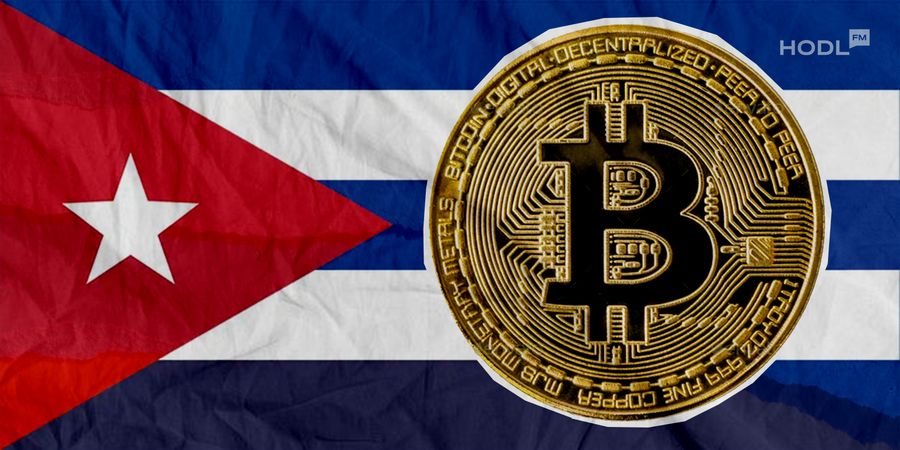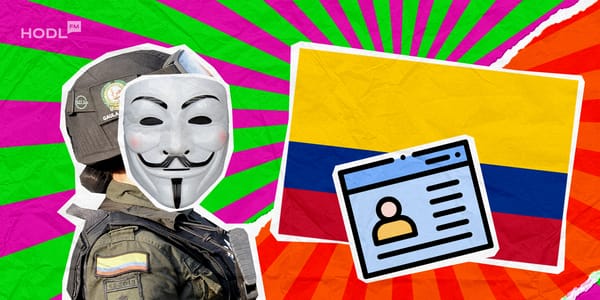An island nation saturated with vibrant colors, and harmful (but delicious) cigars, Cuba has been a center of attraction for decades. However, behind its exotic looks hides a struggling economy that contradicts this vibrant image. But, there is a but. Bitcoin has stepped onto the scene lately, serving not just as a new option for managing money but also as a symbol of financial rebellion during a time when the Cuban peso continues to lose value. BTC brings a fresh, new option for managing money and provides a kind of financial freedom in a country that’s facing economic hurdles and limitations. If you had to carry a currency that loses value every second, you’d also seek a new form of money.
Even with all the exciting changes in money and finance, Cuba is dealing with a lot of economic problems and stress. The Cuban peso, which used to be a point of pride for the country, is now unstable and shaky in the world economy. As it goes up and down, it shows how the economy is struggling. This creates a real need for different financial options, and that’s where the rise of cryptocurrency comes in. During these dark days, Bitcoin shines as a beacon of hope for the Cuban people.
Read more: Mastering the Bitcoin Revolution: 6 Golden Rules for Maximizing Your Future Gains

Uncovering the Bitcoin Revolution
The first signs of this new movement were brilliantly highlighted by Alex Gladstein in his moving article, titled Inside Cuba’s Bitcoin Revolution. Gladstein talks about how people are dealing with economic challenges but also showing strength, creativity, and a somewhat secretive use of Bitcoin. His words, which hint at a kind of rebellion, brought attention to Cuba’s use of cryptocurrency around the world and suggested a quiet digital revolution coming from a place of need and conflict. If you have ten minutes to spare after reading our article, definitely give Gladstein’s piece a read.

Our decision to dive deeper into this story of economic resistance wasn’t really a choice – it was something we felt we had to do. Seeing the strong spirit of innovation growing from the hardships of financial troubles, we found ourselves pulled into a story that was as much about advances in technology as it was about the human spirit, endurance, and quiet resistance. But first, let’s set the scene with some context that paved the way for a rebellion led by Bitcoin.
Cuba’s Strangled Economy
Cuba’s economy can be summed up as “embargoed, isolated, but unbroken”, as for decades the country has wrestled with a huge shadow of economic embargos and communistic shackles. Understanding Cuba’s economic scenario requires a peek into its complex history. Since the Cuban Missile Crisis in 1962, the island nation has faced a substantial economic embargo from the United States, which significantly hampered its global trade and access to resources. Sparked by the installation of Soviet nuclear missiles in Cuba, the crisis heightened Cold War tensions and solidified the U.S.’s stringent stance against its Caribbean neighbor.
This trade blockade from Uncle Sam, situated just 90 miles away, positioned Cuba in a persistent economic bottleneck. It restricted Cuba’s ability to engage in international trade, acquire resources, and access global markets, making the economic landscape in the country notoriously challenging. To adjust to these circumstances, Cuba formed alliances with other countries, like the Soviet Union. However, with the dissolution of the Soviet Union in 1991, Cuba lost a major economic partner and faced severe economic downturns, such as the “Special Period.”
The embargo and the fall of its primary supporter threw the Cuban economy into significant distress, impacting everything from local businesses to individual livelihoods. The economic policies have played out in a way that means for decades, Cubans have lived with limited access to goods, services, and opportunities, forcing them to find alternative ways to navigate these limitations. Consequently, the Cuban currency has been unstable for years prior.
The Barriers to Bitcoin Adoption in Cuba
Getting into technology and finance in Cuba is tricky due to a few significant problems that may sound absurd to the First World. The road to using cryptocurrency like Bitcoin has been paved by the resilience and creativity of the Cuban people. Some basic issues like restricted internet access, scarce financial resources, and strict government supervision make the journey anything but smooth and “user-friendly” as many crypto exchanges put it. Trading Bitcoin from person to person isn’t just a nice-to-have in this country. It’s an essential lifeline in a tough economic situation.
For many outside observers, dealing with cryptocurrency might seem like a risky venture because its value can change so rapidly. But for those in Cuba, it’s viewed as a rare chance in an economically restrictive environment. Every Bitcoin transaction stands as a small act of rebellion against a system that has tightly limited economic freedom for so many years. Try to imagine it as a hidden stream, providing much-needed nourishment and a glimmer of hope in a barren financial landscape.
Connectivity and Freedom in the Internet Age
Now, if we look at the broader scope of digital connectivity in Cuba, the story unfolds further. Limited, and somewhat privileged, internet access does not deter the determined Cuban youth from finding a way to plug into the global digital conversation. Their adaptive and inventive strategies have enabled them to weave through the constrained online spaces, capturing bits and pieces of the expansive digital world beyond their shores.

This small but impactful access to the digital world has catalyzed more than just a sense of global connectivity among Cubans. It’s also spurred a subtle, yet profound, shift in their financial dynamics. Glimpses into global economic frameworks and whispers about decentralized currencies have slowly permeated Cuban society, lighting a spark under a quietly developing financial movement. Thus, beneath the strict conventional structures, a silent shift towards embracing cryptocurrencies like Bitcoin takes root, subtly disrupting the status quo and painting a new financial narrative for the future.
Orange-Pilling Cuba
Now that you know what people have to go through in Cuba, it is time to introduce you to the clever ways Cubans found to organize their financial rebellion.
Max Keiser and his “Orange Pill” podcast have made their way into the minds of Cubans, introducing a bold idea that financial freedom might be achievable, not just a far-off dream. Keiser’s message about a kind of financial rebellion has found a receptive audience in Cuba, where people are ready to explore new ways to manage their money and gain more financial stability.
For those who don’t know, “Orange pill” is a term popular within the Bitcoin community and it’s derived from the “red pill” concept from the movie “The Matrix”. In the film, taking the red pill means waking up to harsh reality, whereas choosing the blue pill allows one to remain in comfortable ignorance.

In the Bitcoin and broader cryptocurrency community, the term “orange pill” is used to describe the process of understanding and accepting the philosophy of Bitcoin and decentralized finance. It signifies an awakening or realization of the perceived value and potential of Bitcoin, against the backdrop of traditional financial systems and fiat currencies. The orange color is derived from the Bitcoin logo.
From a pro-Bitcoin perspective the “pill” symbolizes a shift in mindset, where once you understand (or take the pill), your perception of money and finance changes, focusing on the decentralized and peer-to-peer nature of cryptocurrencies like Bitcoin.
However, with restricted internet access, spreading the word about cryptocurrency in Cuba hasn’t been straightforward. People have shared information quietly, away from the watchful eyes of a government that may not fully grasp the changing perspectives bubbling up among its citizens.
Bitcoin’s Impact on Cuban Society
Regular folks see Bitcoin as a chance to keep their money safe in a system that often makes it hard to do so. It has changed from just a way to handle money to a symbol of personal freedom, protecting individual and family wealth from the country’s economic problems.
Local businesses are also starting to use cryptocurrency. They’re doing this to keep their companies stable and to serve a growing market of tourists who use crypto. Combining traditional business practices with new ways of handling money is creating a new story for businesses all over the country. This mixture of survival and new ideas tells a story of strength, courage, and a big step toward a future where they have more control.

Concluding Thoughts
Bitcoin’s presence in Cuba is a quiet, yet impactful change. Every transaction and every use of Bitcoin is a move toward more financial control. The importance of Bitcoin in Cuba goes beyond its practical use, becoming a strong symbol of freedom and resistance.
More Info:
- Price is the true measure of Bitcoin’s success
- Tesla’s Bitcoin Moves: Unpacking the Quarter’s Crypto Strategy
Bitcoin moves across the country’s economic stage, offering hope and a promise of a future where people have control over their money. The role of Bitcoin in Cuba continues, offering a different narrative to the existing economic stories, speaking to resistance, control, and a future created by many people instead of being controlled by just a few.
Disclaimer: All materials on this site are for informational purposes only. None of the material should be interpreted as investment advice. Please note that despite the nature of much of the material created and hosted on this website, HODL FM is not a financial reference resource and the opinions of authors and other contributors are their own and should not be taken as financial advice. If you require advice of this sort, HODL FM strongly recommends contacting a qualified industry professional.




